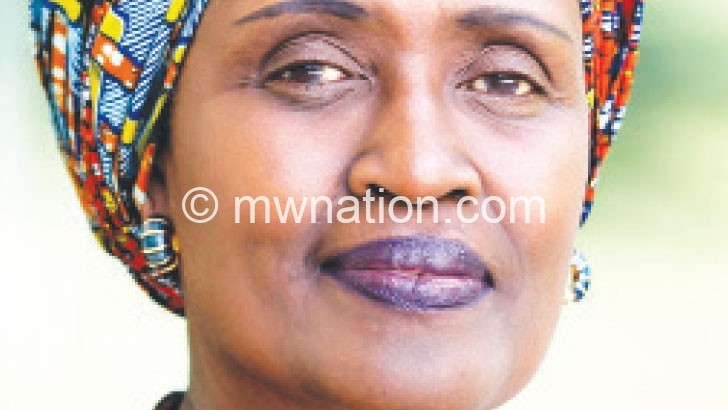‘Fighting HIV and Aids in times of Covid-19’
The Joint United Nations Programme on HIV and Aids (UNAIDS) is the UN entity tasked with fighting HIV infections, discrimination and AIDS-related deaths. Africa Renewal this month spoke with the executive director of UNAIDS, Ms. Winnie Byanyima, about the organisation’s priorities and its response to Covid-19 in Africa: Here are the excerpts:

Q
How has the Covid-19 pandemic affected those living with HIV in Africa?
A
There is evidence that the Aids-related death toll could double in sub-Saharan Africa from 2020 to 2021 if HIV services are severely disrupted—this would mean an additional 500 000 Aids-related deaths. But not only that new infections among children— through mother-to-child transmission—could increase by even more than 100 per cent in some countries in Africa. We could see the progress made in fighting Aids reversed by 10 years. And that’s dangerous. So, it’s so important to put the message out there that we should keep up the two struggles, on HIV and Covid-19. Do not drop one for the other.
Q
Anti-retroviral therapy has helped save lives and prevent transmission of HIV. Did the Covid-19 lockdowns affect supply of the drugs?
A
Some of the lockdown measures in many countries impinged on the rights of people living with HIV, like the ability to go collect their medicines. So, we pushed for governments to give people living with HIV supplies for three to six months, as opposed to every few weeks.
We also saw human rights violations of gay people and sex workers being arrested—accused of spreading Coronavirus— and transgender people being denied food and services because they don’t have an identity card. We are pushing for their rights by working with governments and collaborating with civil society.
QWhat are your plans to put more people on Antiretrovirals (ARVs) in Africa?
A
The fact that we are the continent that is the most affected by HIV and Aids and yet most of the ARVs are manufactured elsewhere is a loss to us. Even the prevention commodities are imported. These products should be produced in Africa, creating jobs and raising taxes to put back in our health systems.
It is important that we build our manufacturing capacity in Africa. There may be some in South Africa, a few Nigeria and may be in Egypt, but we need to pool together, produce our own medicines and share the African market.
QWhat are UNAIDS priorities in the fight against HIV and Aids in the next 10 years?
A
UNAIDS was created to fight HIV and Aids globally. We have about 24.5 million people on anti-retroviral [ARV] treatment, and there is another 15 million people who are HIV-positive but have not been tested yet.
Our report shows that there were 1.7 million new HIV infections globally in 2018 alone and another 770 000 people died of Aids in the same year. While we are seeing the rate of infections is coming down, these numbers are still high.
Our priority for the next 10 years is to work extremely hard on prevention, especially among vulnerable groups. For women and girls, we have to address the structural causes of their vulnerability which including culture, traditions and poverty, among others. The fact that sexual violence is so pervasive, we have to tackle that.
QWho is most at risk of new infections?
A
The most vulnerable in Africa are mostly women and girls. In other parts of the world, it is gay men, sex workers, prisoners, migrants, and people who inject drugs. Prevention isn’t happening fast enough. Up to 1.7 million new infections and 770 000 deaths in one year are too many. We can still reduce the overall new infections and deaths significantly.
Q
What needs to be done?
A
We need more tools of science, for example, we need more PrEP [Pre-exposure prophylaxis where people at risk or those that have been exposed to HIV take daily medicine to prevent the infection]. Recently, there have been more innovations in PrEPs which could be used more among gay men and sex workers. However, if in some places these people are called “illegal”, they are not able to go get these services.
A
We also need to deal with some of the constraints, including the lack of comprehensive age-appropriate sex education in schools to empower girls with knowledge to understand their bodies and take control of them.
Q
There are reports that gender-based violence is on the increase during the Covid-19 pandemic. Are we likely to see a surge in HIV infections due to this?
A
Absolutely! Sexual violence is a key driver of HIV infection, especially among adolescent girls and young women. Sadly, in Africa, 5 400 young women are infected with HIV every week! The rate of infection of girls is four times more than that of boys of the same age. Women and girls are so much more vulnerable to infection and it’s all driven by tolerance of sexual violence, the culture of accepting harmful masculinity; lack of comprehensive sexual education in schools. This environment that makes a girl unsafe has been worsened by Covid-19.





